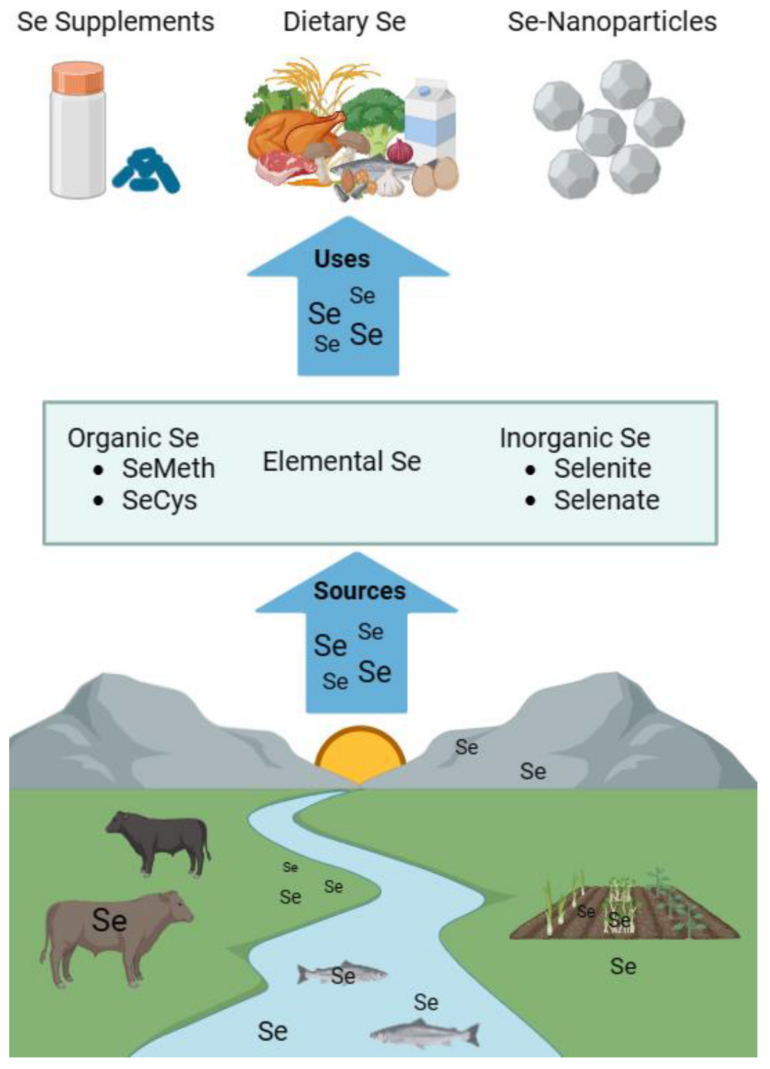Selenium is a nutrient that plays a crucial role in human health, contributing to the thyroid and immune function, DNA repair, and cardiovascular and cognitive health.
It acts as an antioxidant – substances that protect cells from unstable molecules that can damage DNA, proteins and cell membranes. It can even protect against cancer.
Selenium is a vital trace element found in living organisms, soil and plants, and your body needs only a small amount of it to function. The recommended dietary allowance for selenium in adults is 55 micrograms per day, with an upper limit of 400 micrograms. In comparison, adults need between 900 to 10,000 micrograms daily of copper, another trace element, and between 8,000 to 40,000 micrograms of the trace element zinc.
An excess or deficiency of selenium can have significant health consequences. In my work as a pharmaceutical science researcher, my colleagues and I study the potential use of selenium to boost the effectiveness of chemotherapy for cancer treatment.
A dose of selenium
Selenium was first discovered in 1817 by chemist Jöns Jacob Berzelius while analyzing an impurity in a batch of sulfuric acid produced in a factory in Sweden. Berzelius initially thought the material was the element tellurium, but he eventually realized that it was actually an unknown substance at the time. He named the mineral after Selene, the Greek goddess of the Moon, because of its similarity to tellurium, which had been named after the Roman goddess of the Earth.
Selenium exists in both organic and inorganic forms. Organic compounds contain carbon atoms and are typically derived from living organisms, while inorganic compounds do not have carbon atoms and generally originate from nonliving sources. Your cells chemically convert between these forms to carry out various physiological functions.
Selenium deficiency is a significant health issue, particularly in regions with selenium-poor soils, such as parts of China, Africa and Europe. Low selenium levels are associated with Keshan disease, a fatal heart condition, and Kashin-Beck disease, which affects joints and bones. Deficiency also weakens immune function, increasing susceptibility to infections.

Brazil nuts contain particularly high levels of selenium.
R.Tsubin/Moment via Getty Images
Consuming too much selenium is also an issue. Oversupplementation or excess environmental exposure can lead to selenosis, a condition with symptoms such as brittle hair and nails, digestive issues, skin rashes and neurological symptoms such as irritability and fatigue. In severe cases, selenium toxicity can result in organ failure and death.
Selenium has a narrow therapeutic window, which is the dosage range that provides safe and effective treatment with minimal harmful side effects. For example, selenium can either increase or decrease your body’s immune function, depending on the dose. Adequate levels of selenium strengthen your…



